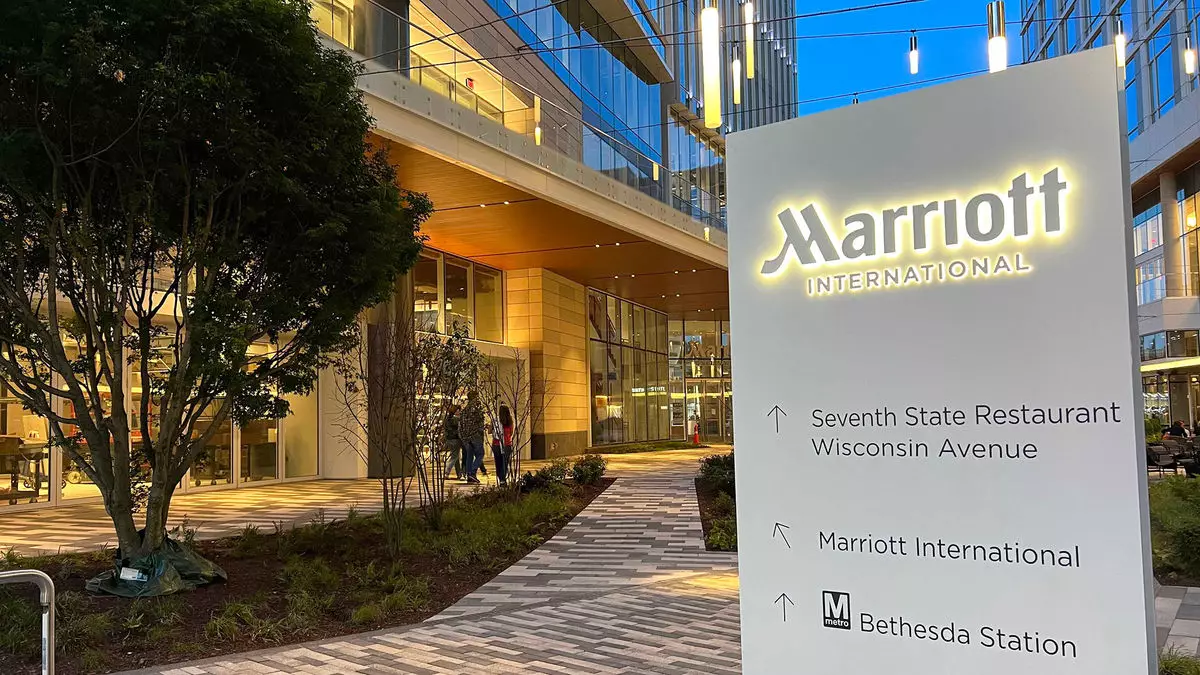Marriott International’s recent fourth-quarter earnings call, led by CFO Leeny Oberg, highlighted the company’s ability to navigate potential challenges stemming from U.S. economic policy changes, particularly concerning relations with Canada and Mexico. The backdrop of economic tensions, exacerbated by the Trump administration’s tariff threats and President Trump’s temporary halt to such actions, created an environment of uncertainty. Despite these factors, Oberg emphasized that the tangible effects on Marriott’s performance remain minimal. With Canadian and Mexican travelers representing only about 1% to 2% of the company’s U.S. business, the implications of reduced international travel from these neighboring countries seem negligible when considering the vastness of Marriott’s overall operations.
However, the U.S. Travel Association has indicated that even a modest 10% decline in Canadian travel could result in approximately 2 million fewer visits and a significant loss of $2.1 billion in revenue. This statistic underscores how sensitive the hospitality industry can be to external economic pressures. Moreover, amidst heightened nationalism and calls from Canadian Prime Minister Justin Trudeau for citizens to support domestic tourism, the dynamics of cross-border travel may experience shifts that could impact future growth.
Despite these external concerns, Marriott reported robust fourth-quarter results, enjoying a 5% increase in global revenue per available room (RevPAR) along with a rise in average daily rates and occupancy levels. The U.S. and Canada segment demonstrated a similar positive trend, with RevPAR growth exceeding 4%. Marriott Ceo Anthony Capuano credited the resilience of travel demand, particularly around the time of the U.S. presidential elections, suggesting that consumer confidence might run deeper than anticipated.
This strong performance in the leisure and business sectors, especially in Marriott’s luxury and resort segments, highlights the company’s successful strategies to attract diverse customer bases. Marriott’s ability to adapt and thrive during uncertain times reflects not only its brand strength but also a commitment to continuous innovation in its service offerings.
Looking ahead, Marriott’s leadership has laid out ambitious plans focused on a “multi-year digital transformation.” This initiative, set to roll out soon, entails a significant investment in technology designed to enhance property management, bolster reservation systems, and revamp loyalty programs. With a heightened emphasis on improving guest experiences through technological advancements, Marriott appears poised to redefine the hospitality landscape.
Capuano articulated the importance of streamlining customer interactions across all service categories, from accommodations to dining and leisure activities. This venture should yield significant revenue benefits for the brand, as ease of access to services can drive up consumer spending and satisfaction. By positioning itself at the forefront of technological innovation, Marriott’s aim is clear: to foster customer loyalty and enhance overall profitability.
In addition to technological upgrades, Marriott is directing substantial capital toward enhancing its owned and leased properties. Notably, the renovation of Elegant Hotels in Barbados, acquired in 2020, indicates a long-term commitment to asset quality. With substantial renovations expected to drive performance up until 2025 and a prospective sale of the resort real estate post-renovation, Marriott is deftly maneuvering through market realities with an eye toward profitability.
Capuano remarked on the heightened interest in all-inclusive offerings, providing a positive outlook for when this segment is eventually put up for sale. The luxury and resort markets are continuing to demonstrate strength, and this potential revenue avenue reflects Marriott’s adaptability to market trends and preferences.
Marriott’s fourth-quarter report stands as a testament to the company’s resilience in the face of economic uncertainty and international tensions. Through strategic investments in technology and property enhancements, coupled with a robust approach to engaging consumers, Marriott not only safeguards its current market position but also paves the way for future growth. As the hospitality industry continues to face challenges, Marriott’s proactive measures signal a forward-thinking mindset that aims to capitalize on opportunities, reinforcing its place as a leader in the global market.


Leave a Reply